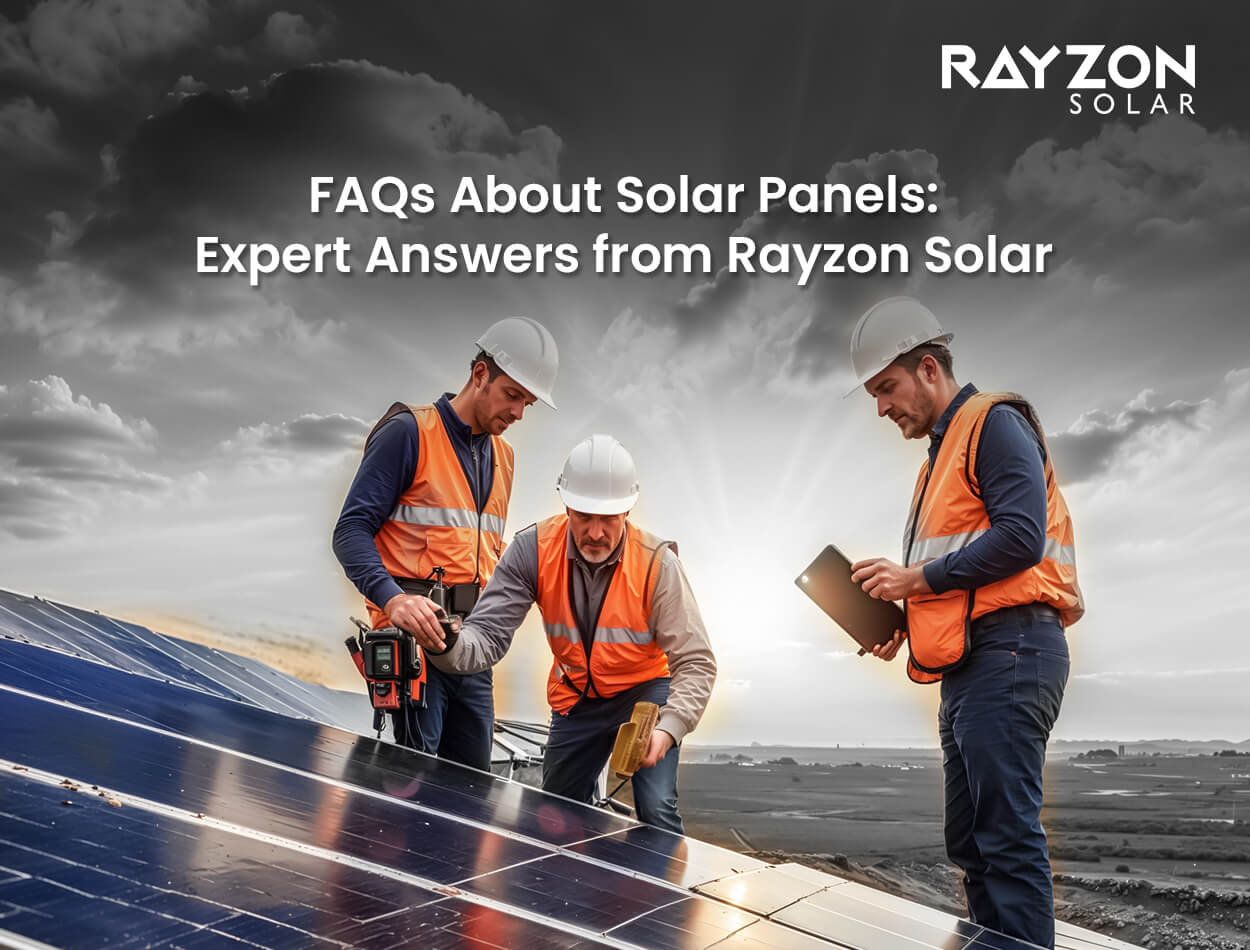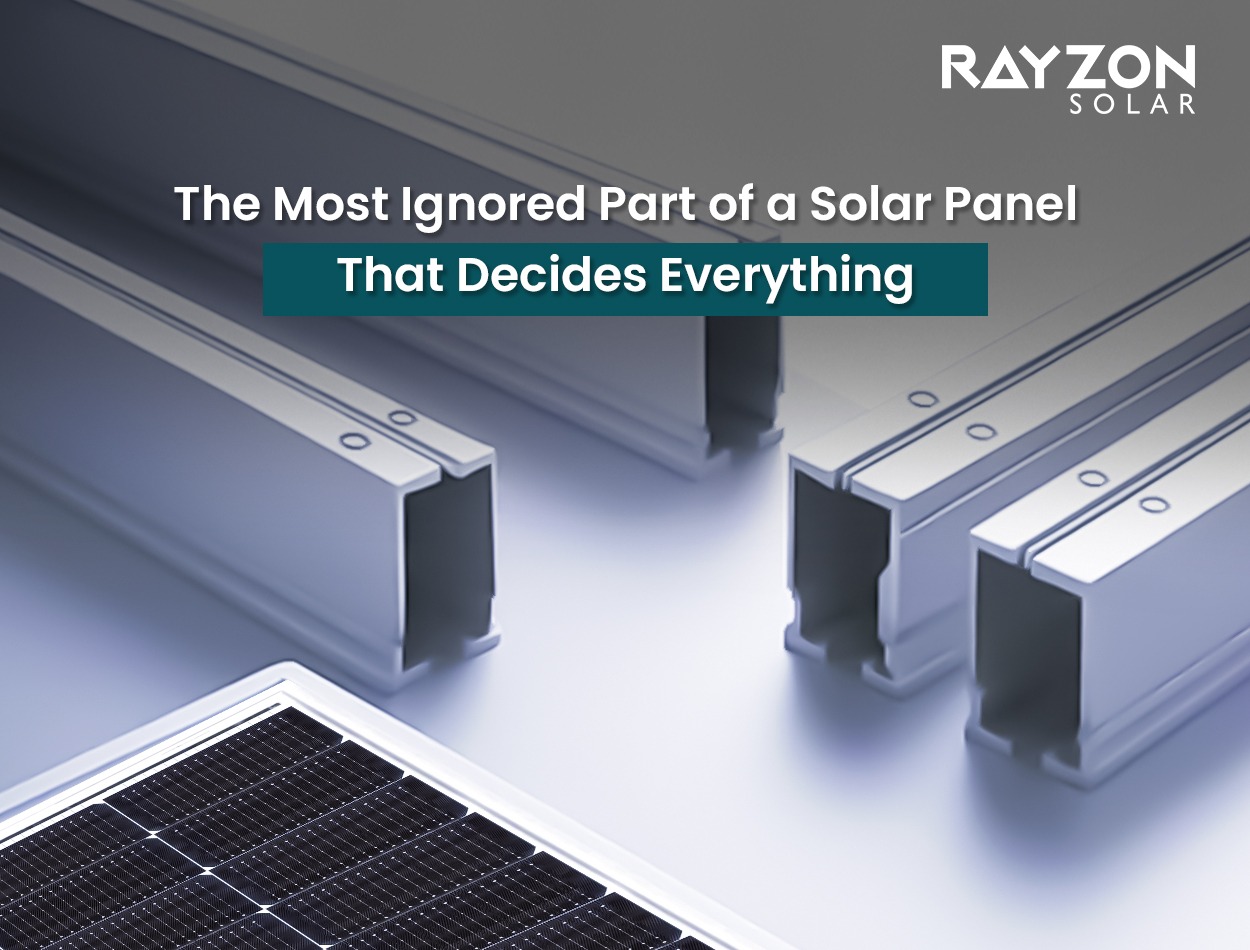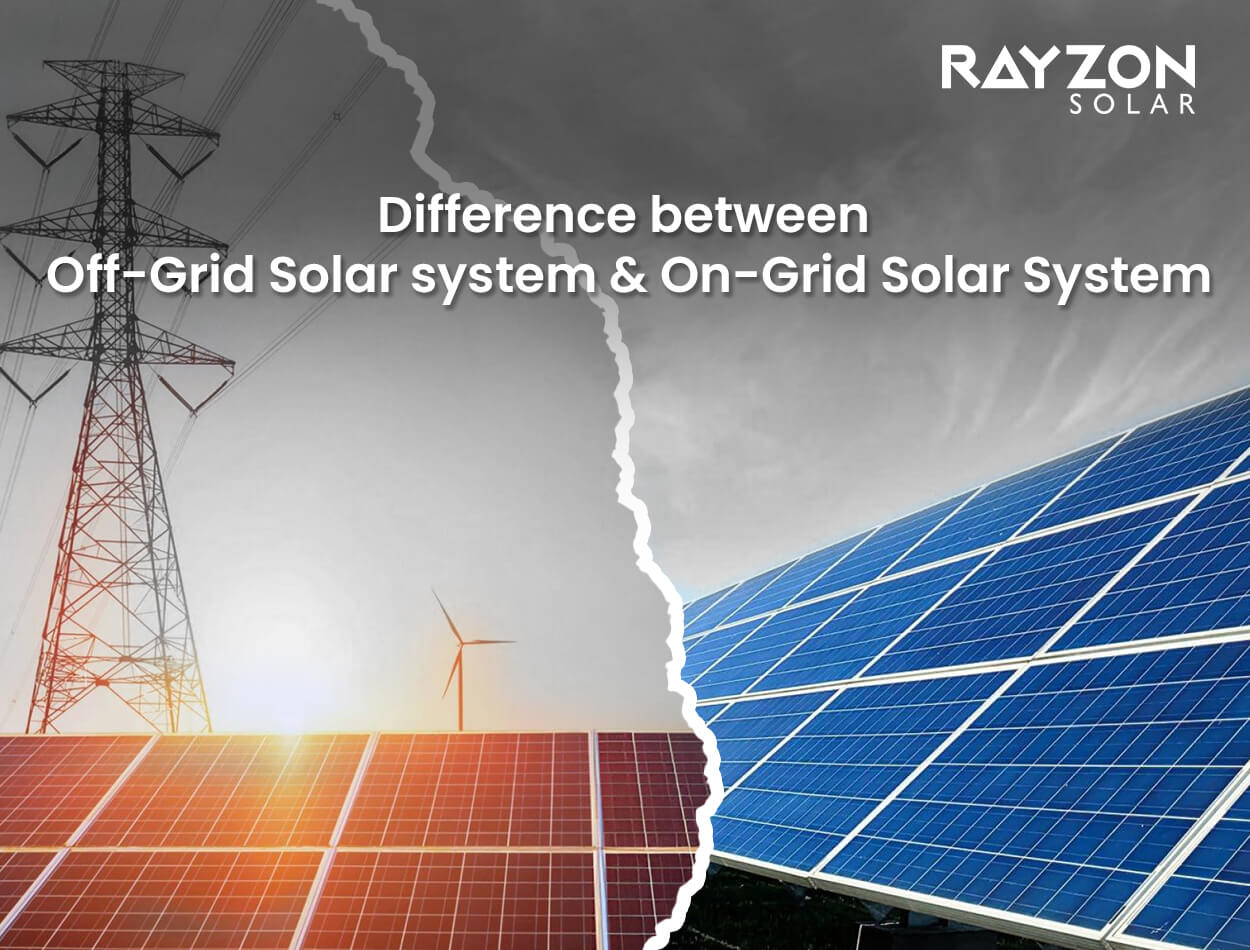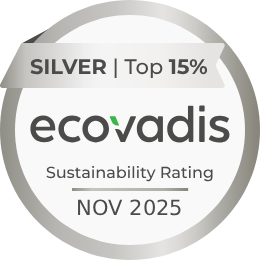
FAQs About Solar Panels: Expert Answers from Rayzon Solar
Solar energy is one of the fastest-growing renewable energy sources worldwide. With its potential to cut electricity costs and reduce carbon footprints, many homeowners and businesses are exploring solar panel solutions. However, this journey often starts with questions. At Rayzon Solar, one of the largest solar panel manufacturers in India, we aim to empower you with answers to the most frequently asked questions about solar panels. Let’s dive in!
What Are Solar Panels, and How Do They Work?
Solar panels are devices that convert sunlight into electricity using photovoltaic (PV) cells. When sunlight hits these cells, it generates an electric current through a process known as the photovoltaic effect. This energy can power your home or business or even be stored in batteries for later use.
Key Benefits of Solar Panels:
1. Cost Savings: Reduce your electricity bills significantly.
2. Environmentally Friendly: Solar energy reduces carbon emissions.
3. Low Maintenance: Solar panels require minimal upkeep.
Explore our solar panel options to find the right fit for your energy needs.
How Long Do Solar Panels Last?
Solar panels typically last 25-30 years. During this time, their efficiency might decrease slightly, but they continue to produce energy effectively. Regular maintenance can further extend their lifespan.
Maintenance Tips for Longevity:
- Clean panels every few months to remove dirt and debris.
- Conduct annual inspections for potential damages or wiring issues.
- Learn more about maintaining solar panels.
How Much Do Solar Panels Cost?
The cost of solar panels depends on various factors such as:
- System Size: Larger systems cost more but offer greater energy savings.
- Panel Type: Mono PERC and Topcon panels have different price points.
- Installation Costs: These vary by region and project complexity.
At Rayzon Solar, we provide cost-effective and high-efficiency panels. Contact us for a custom quote.
Are Solar Panels Effective in Cloudy Weather?
Yes, solar panels work even in cloudy weather, although their efficiency might decrease slightly. Modern solar panels, like our Rayzon 210R 625WP, are designed to capture maximum energy even in low-light conditions.
Pro Tip:
Pairing solar panels with battery storage ensures uninterrupted power, regardless of weather conditions.
What Are the Types of Solar Panels?
There are three main types of solar panels based on their design and functionality:
1. Bifacial Panels:
- Can absorb sunlight from both the front and back sides, increasing energy generation.
- Ideal for installations with reflective surfaces, such as snow or sand, to maximize output.
2. Monofacial Panels:
- Absorb sunlight only from the front side.
- Widely used in traditional rooftop and ground-mounted systems.
3. TOPCon (Tunnel Oxide Passivated Contact) Panels:
- Advanced technology with higher efficiency than conventional monocrystalline panels.
- Improved performance in low-light conditions.
- Longer lifespan and better temperature tolerance.
Discover which solar panel suits your needs.
What Is the Installation Process?
The installation process involves several steps:
1.Site Assessment: Evaluate your property’s solar potential.
2.System Design: Customize the system to meet your energy needs.
3.Permits and Approvals: Obtain necessary permissions.
4.Installation: Mount the panels and connect them to the inverter and grid.
5.Inspection and Activation: Ensure everything is operational.
Rayzon Solar provides end-to-end solutions, ensuring a hassle-free experience for our customers.
Do Solar Panels Require a Battery Backup?
Batteries are optional but beneficial. They store excess energy generated during the day, allowing you to use solar power at night or during power outages. This feature is especially valuable for off-grid living.
Learn more about solar energy for off-grid living.
Are There Government Incentives for Solar Panel Installation?
Many governments offer incentives like tax credits, subsidies, and net metering programs to encourage solar adoption. These can significantly reduce the initial cost of installation.
Example Incentives in India:
- Subsidy Schemes: For residential solar systems.
- Net Metering: Earn credits for surplus energy sent back to the grid.
Check out our blog on government incentives for solar panelsto understand how you can save.
How Do I Choose the Right Solar Panel Manufacturer?
Selecting the right manufacturer is crucial for quality and reliability. Here’s why you should choose Rayzon Solar:
- Proven track record as a one of the top solar panel manufacturer in India.
- High-efficiency panels with cutting-edge technology.
- Strong customer support and warranty coverage.
Read about our milestones and achievements.
What Are the Environmental Benefits of Solar Panels?
Solar panels play a significant role in combating climate change by reducing greenhouse gas emissions. Switching to solar energy:
- Minimizes dependency on fossil fuels.
- Helps preserve natural resources.
- Contributes to cleaner air and water.
Discover more about the environmental benefits of solar energy.
FAQs Recap: Quick Answers
1. What is the lifespan of solar panels?
o 25-30 years with proper maintenance.
2. Do solar panels work in cloudy weather?
o Yes, though efficiency may reduce slightly.
3. What types of solar panels are available?
o Monocrystalline, polycrystalline, and thin-film panels.
4. Are there incentives for installing solar panels?
o Yes, including subsidies and net metering programs.
5. Why choose Rayzon Solar?
o High-quality panels, excellent support, and advanced technology.
Ready to Go Solar?
Switching to solar energy is not just a smart financial decision but also an investment in a sustainable future. At Rayzon Solar, we’re committed to helping you make this transition seamless and rewarding.
Visit our product page to explore our range of solar panels, or contact us for expert guidance. Let’s harness the power of the sun together!



